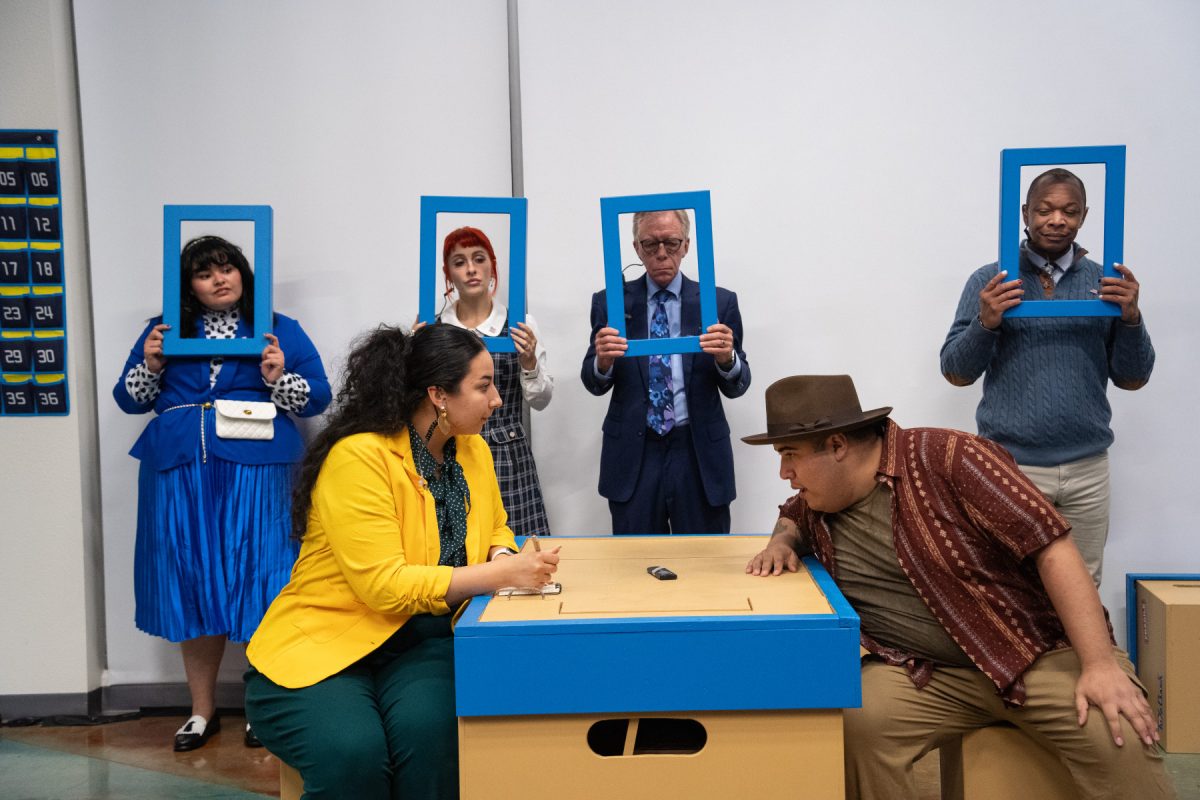To watch “The Hispanic/ Latino/Latina/Latinx/Latine Vote” is to step into a space filled with personal struggles and sweeping political questions. Witten by Bernardo Cubría and directed by Dr. Maria Patrice Amon, this play manages to take a deeply nuanced look into the complexities of identity, representation, and civic engagement within the diverse Hispanic and Latinx communities in the United States.
The story follows Paola Aguilar, a 39-year-old university professor drowning in debt after years of IVF treatments, who takes on a consulting job with “The Political Party.” Tasked with helping the organization win the Hispanic/Latinx vote ahead of the election, Paola finds herself navigating a role that demands she reconcile her academic expertise with the reductive expectations of a monolithic political narrative. Her personal and professional world collide, bringing to light the challenges of representing a community as diverse and multifaceted as the one she’s meant to speak for.
“The idea that Latinos vote as one uniform group has always been a misconception,” said Dr. Amon, chair of Cal State San Marcos’s theater department. “The community encompasses a vast range of racial identities, languages, religions, and cultural experiences. Cubría’s script satirizes this oversimplification, pushing audiences to reconsider their assumptions.”
The play cleverly weaves vignettes that spotlight characters from varied backgrounds, from young to older generations. Cubría’s writing doesn’t shy away from the stark contrasts within the Latinx community—contrasts shaped by geography, class, generational divides, and even individual self-identification.
For instance, Paola’s professional expertise in Latinx studies is both an asset and a source of tension. Her discomfort with being the “token” Latina hired to represent a community she knows cannot be neatly defined reflects the internal tug-of-war many Latinos feel when navigating spaces dominated by external expectations.
Cubría’s script challenges the popular narrative that Hispanic and Lainx communities vote as a single, monolithic bloc. Through a blend of satire and heartfelt moments, the play addresses the many layers of diversity within these communities, the difference in language, racial identity and generation experiences. The play’s humor never felt dismissive, instead it draws the audience closer, encouraging them to grapple with these complexities alongside the characters.
The performance style is as engaging as the themes. The play breaks the fourth wall, with Paola directly addressing the audience, pulling them into the decision-making process. In one moment, Paola pauses her journey to ask the audience for advice. Should she compromise her values for financial rewards? Should she speak for an entire community when she knows how reductive that expectation is? These moments of direct engagement create a dynamic experience, transforming the audience from passive observers to active participants.
The play also wrestles with the ever-evolving terminology used to describe these communities – Hispanic/Latino/Latina/Latinx/Latine- highlighting how no single term can capture the full range of identities and experiences. The tension between these labels often imposed from the outside, reflects a broader struggle for self-definition in a society that too often reduces people to convenient categories. It’s a conversation that resonates deeply, not only for the Latinx community but also access other marginalized groups navigating the politics of representation.
What makes this play different is that it refuses to provide easy answers. Instead, it offers a mirror to the audience, reflecting the challenges, contradictions and possibilities inherent in trying to understand and honor the diversity within any community. As Paola grapples with her role in shaping political narrative, the play invites the viewer to confront their own assumptions and biases by leaving them with questions that linger after the final curtain call.
The result is work that feels urgent and necessary. At a time when identity is often weaponized in political discourse, Cubría and Amon remind us of the power of nuance, empathy, and collective action.


